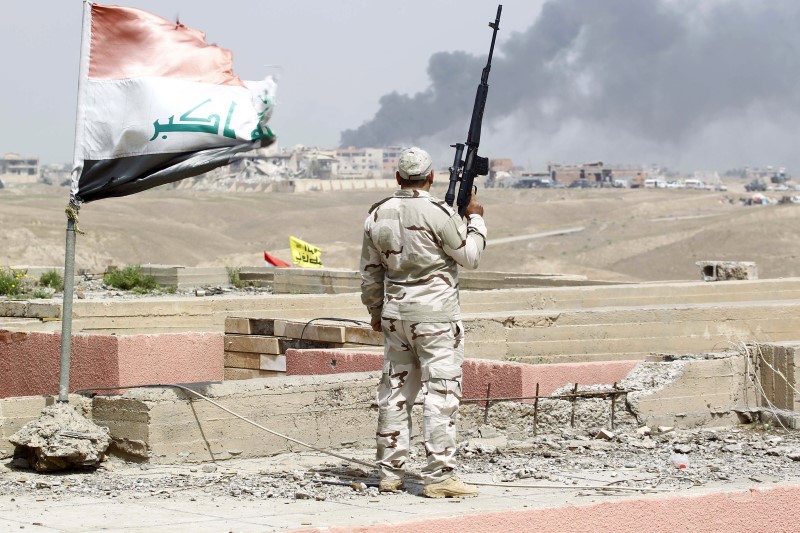(Bloomberg) -- Investors who stocked up on Iraqi government bonds are turning tail after the Trump administration threatened sanctions amid the fallout from a U.S. drone strike in Baghdad that killed top Iranian General Qassem Soleimani.
Iraqi dollar-denominated bonds due in 2028 tumbled about 5 cents to a one-year low of 92.7 cents in the two trading sessions after the attack. While they edged higher on Tuesday, investors fret that Iraq could threaten to withhold debt payments as one way to fight back against sanctions.
“We can add the risk of Iraq becoming once again a theater of conflict between the U.S. and Iran,” said Patrick Esteruelas, who heads research at Emso Asset Management in New York. “The positive pillars of the credit have been its healthy external position and the insulation of southern Iraqi oil facilities from violence. But the negatives are climbing fast.”
Overseas investors betting on a reliable stream of oil revenue bought more than $3 billion of bonds sold by Iraq since 2006, when the country returned to international markets after being shut out for more than a decade under former dictator Saddam Hussein. That year, it sold $2.7 billion of debt due in 2028 and returned again in 2017 with another $1 billion of bonds due in 2023.
U.S. President Donald Trump has threatened Iraq with sanctions if it pushes American troops out of the nation in the wake of the strike without repaying the billions of dollars it cost to build military bases. An errant draft of a U.S. letter that outlined preparations for American forces to exit stoked questions about whether or when the forces would leave.
There’s a risk that U.S. officials could claim Iraq’s foreign reserves or other assets as compensation if its military were to be removed, said Timothy Ash, an emerging-market strategist at BlueBay Asset Management in London. Sanctions could halt new sales of dollar-denominated sovereign debt and make it harder for Iraq to repay what it already owes, he said.
“It seems prudent to reduce risk in those places,” Ash said. “It’s a hugely uncertain environment now in the Middle East, post-Soleimani’s assassination.”
While support from oil exports should prevent Iraq’s debt from total collapse, investors are weighing the possibility of a political default. Choosing not to repay international investors could be a way to fight back against sanctions -- or at least take a stand.
“That could play to the crowds and serve as a high-profile warning without resorting to military conflict,” said Frances Hudson, a global strategist at Aberdeen Standard Investments in Edinburgh.
